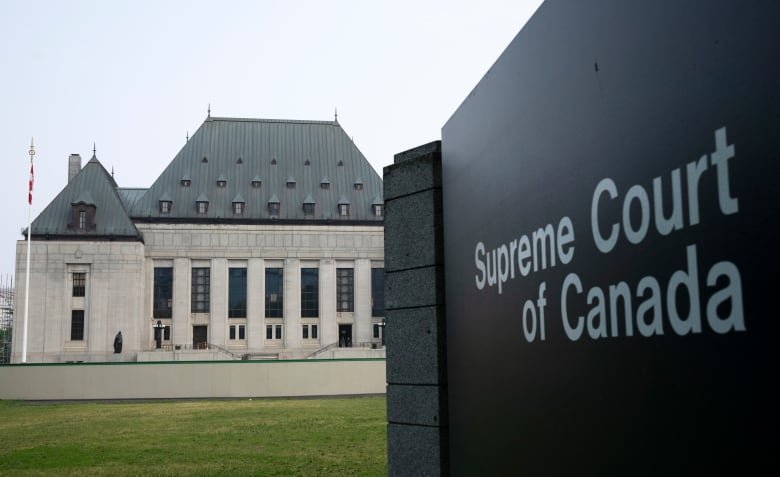Too many victims of sex crimes in Canada must face the difficult task of testifying about deeply distressing experiences in court, an “unfortunate” and “tragic” consequence of stiff sentences that offer no incentive for offenders to plead guilty and forgo a trial.
That’s the suggestion made recently by one of Nova Scotia’s top provincial court judges, who said many accused of sex offences are willing to “roll the dice” by going to trial because long sentences, often involving prison time, mean there is little benefit to admitting guilt.
The comments by Associate Chief Judge Rhonda van der Hoek at a court hearing in Kentville, N.S., come as the treatment of victims in the justice system continues to be widely discussed, along with concerns about sexual assault cases in some parts of the country being tossed due to delays.
Sexual assault cases are taking longer to make their way through the courts, many now saddled with lengthy pre-trial hearings that stem from 2018 changes to the Criminal Code aimed at protecting the rights of victims but which can slow the wheels of justice.
The prospect of a vulnerable victim being retraumatized during testimony figured prominently in a case before van der Hoek earlier this month, as she sentenced a 75-year-old man who pleaded guilty to sexually assaulting his 10-year-old sister in 1967 to two years probation.
The sentence was jointly recommended by the prosecution and defence. Crown attorney Nathan McLean noted the man’s guilty plea was a “very, very mitigating factor” because the victim continues to struggle more than five decades later and will not have to relive the trauma by testifying in court.

The man was just 17 at the time of the offence, which means his name is banned from publication, despite his current age, and he was entitled to be treated as a youth by the court and face a much lower sentence than an adult.
“It is exceedingly, increasingly rare for people to plead guilty to charges of this nature,” van der Hoek said.
“I heard it said recently that there is almost no incentive for somebody to plead guilty and accept responsibility for committing a sexual offence because as adults, the sentences are long, they are almost always in periods of incarceration in a federal institution, and there is almost no benefit to pleading guilty. It’s better to roll the dice and see what happens.
“That rolling of the dice unfortunately means that many victims in this country have to testify because there’s no incentive for a charged person to plead guilty, and that is unfortunate and tragic.”
Peter Sankoff, a criminal defence lawyer and professor at the University of Alberta, said van der Hoek’s comments are “100 per cent correct.”
If someone faces prison time even if they plead guilty, he said, many will opt to go to trial and hope for an acquittal, especially if they already face social ostracism or have lost their job due to the charges.
“I’m not here to comment on whether it’s a good idea, bad or good, for people to go to prison for long periods of time,” Sankoff said in an interview. “I’m just here to state to you the obvious — that the more you ratchet up prison time, the less likely it is that people are going to plead guilty.”

Between 40 and 57 per cent of sexual assault offenders found guilty in Canada in recent years were sentenced to custody, according to Statistics Canada, with higher incarceration rates for sex crimes against children and youth.
More serious cases are dealt with more harshly. One Nova Scotia judge who reviewed cases from across the country found sentences for sexual assault involving intercourse range from 18 months to four years, even when the offender had no criminal record.
In 2020, the Supreme Court of Canada urged judges to hand down higher sentences for adults convicted of sex crimes against children, and said longer periods of incarceration, such as 10 years in prison, should not be unusual.
But not everyone agrees that lower sentences could lead to more guilty pleas.
Dawne Way, a Toronto lawyer who represents sexual assault victims in criminal proceedings, said sex offences remain a “highly stigmatized crime.” They are also difficult to prosecute.
Often, there isn’t much evidence beyond the testimony of the complainant and the accused, in many cases consent is the central issue, and like other other crimes the prosecution faces the high burden of proof beyond reasonable doubt.
“In many ways the nature of a sexual assault is such that it opens the door to many acquittals,” Way said.

The low number of guilty pleas was not the only concern van der Hoek raised earlier this month at the sentencing hearing in Kentville. She also pointed to cases taking “inordinate” time due to the number of pre-trial applications.
A spokesperson for the Public Prosecution Service of Nova Scotia noted many sexual assault cases involve pre-trial hearings where a judge must sort out whether things like text messages, even between the accused and complainant, videos and other kinds of communications can be used as evidence.
The “rape shield” provision of the Criminal Code restricts how a complainant’s sexual history can be used at trial. The aim is to guard against the “twin myths” — that other sexual activity makes them less believable, or infers they were more likely to have consented. Another section aims to protect a complainant’s privacy, such as their psychiatric records.
In order for the defence to access or use such information, they must first convince a judge. Hearings can be lengthy and sometimes take longer than the trial itself.
In 2018, the federal Liberal government expanded the laws. Bill C-51 made a complainant’s sexual communications (not just activity) subject to the rape shield provision.
A judge’s approval is also now needed to use at trial personal records related to a complainant that are already in the possession of the accused, such as text messages between the two, if they contain information for which there was reasonable expectation of privacy.
The legislation also gives complainants the right to be represented by their own lawyers at hearings to determine what evidence related to them will be turned over to the defence or used at trial.
“Canadian laws on sexual violence criminal prosecutions have undergone several changes to achieve a balance between the interests of victims and the rights of the accused,” Nova Scotia Public Prosecution Service spokesperson Melissa Noonan said in an email.
“While these applications are a critical part of the legal process to ensure fairness and justice for all parties involved, they take significant time to prepare briefs and conduct these hearings in court.”
Cases taking longer
The time for sexual assault cases to make their way through the court system has doubled in the last decade in Nova Scotia, reaching a median of 422 days last year.
However, the prosecution service said pre-trial hearings are not the only time-consuming element, pointing to the “evolution of cellphones into hand-held supercomputers” that contain huge amounts of data that must be “analyzed, stored, and disclosed” before it can be used as evidence.
A cellphone can yield 5,000 pages of text messages, Way said, “and I’m not throwing that around loosely.”
Another issue leading to delays, she said, are defence lawyers applying to use records when the trial date is close. That can push the trial date down the road, increasing the risk the case could be tossed due to delays by breaching timelines set by the Supreme Court of Canada in 2016.
Complainants, she said, are then forced to choose between asserting their rights to protect their privacy, or waiving them to keep the trial on track.
“It’s an untenable situation for complainants to be in,” she said.
‘Like a perfect storm’
Sankoff said some of the changes in law have come from societal outcry that followed certain cases, but the result has been to turn sexual assault prosecutions into “a lengthy debate about secondary matters like records.”
“Cases taking longer is not good for survivors and cases not being resolved through guilty pleas is bad for survivors,” he said.
“It’s sort of like a perfect storm. We’ve created these conditions in which we are continuing to push for outcomes we think are more desirable in one sense, and by more desirable I mean more convictions and better processes for survivors in the system.
“But what I’m here to tell you is those decisions have had enormous consequences and we’ve yet to try and reconcile what they are, although we’re starting to see the results, and consequences of those decisions start to emerge on an almost daily basis.”


